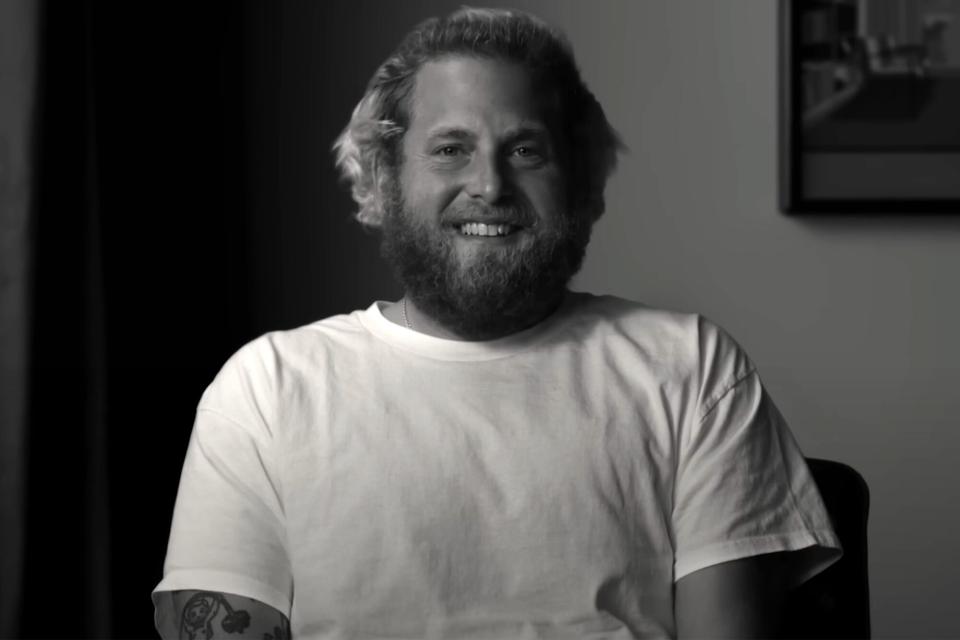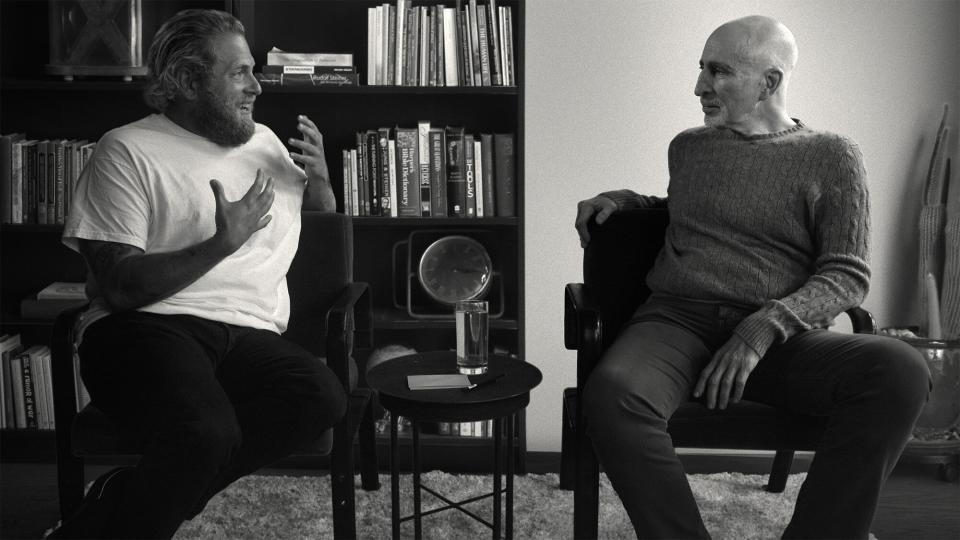Jonah Hill says body insecurities 'intensely f----ed' him up in mental health documentary
- Oops!Something went wrong.Please try again later.
Jonah Hill reconciles with his former afflicted self in Stutz, the documentary he has directed which centers on his therapist Phil Stutz, a renowned psychiatrist to the stars.
The actor and filmmaker opens up about his body insecurities — ones that "intensely f—-ed [him] up" — in the experimental project, which debuts Nov. 14 on Netflix. Hill's most personal project yet, the documentary features candid conversations between the actor and Stutz in intimate, unorthodox sessions that flip the script on therapist-patient dynamics.
"I just keep asking myself, 'Was this a f—-ing terrible idea for a patient to make a movie about his therapist?'" Hill laments at one point. Stutz quips that this "is either the greatest documentary ever made or the worst," adding, "it's probably both." In it, Hill shines a light on Stutz's approach to mental wellness and gets candid about the factors that led him to seek help. The Wolf of Wall Street actor started seeing Stutz "out of desperation to get happier," he reveals.

Netflix Jonah Hill in 'Stutz'
"I had no healthy self esteem," Hill says. "Having grown up overweight was something — that sounds like not a big deal, or like, 'Poor you' or whatever — but for me, personally, it intensely f—ed me up." Hill reveals that Stutz's introduction of the concept of a "shadow," described as the version of yourself that you want to hide most from the world, helped him realize he hadn't fully shaken his self-loathing from years' past.
At one point, Hill pulls out a large cardboard cut-out of himself as a teenager, when he had more weight. "This is what I pictured that day — me at 14," he says, recounting the day Stutz told him to envision his shadow. "When I met you I was 33, maybe. I had an incredible amount of success," recounts Hill, who rose to fame through comedies like Superbad and 21 Jump Street. But "inherently, at my core, I'm still this unlovable person," he says. "The work is inching towards not only accepting [that] it's great to be this person, but that's still very hard."
Hill had "no confidence as a human being," he says. "I just didn't invest in myself and understand how to like myself. I just worked to achieve this thing, which is your idea of the snapshot." Stutz defines the snapshot as a realm of illusion, wherein individuals seek out the perfect experience. "I think success and awards will absolve me of the pain of life, so I work so hard to get to that snapshot," he says.

Netflix
When success came, however, "it didn't cure any of that stuff," Hill says. "It made me beyond depressed. At the same time, the media kept being really brutal about my weight. It was just kind of free game for anyone to sort of hit my sore spot. I'd be so angry. It kept me from feeling any sense of being able to grow past negative feelings about myself."
The documentary tracks both Hill and Stutz's mental health journeys. Over the summer, Hill announced that he'd be stepping away from promoting his upcoming films, Stutz included, for mental health purposes. He revealed that he had been suffering from anxiety attacks for over 20 years, exacerbated by media appearances and public-facing events.
The film is a tribute to Stutz's life and career, punctuated by lighthearted moments between two friends from different generations. "I'm making this movie because I want to give therapy and the tools I've learned in therapy to as many people as possible through a film," Hill says in the documentary. "I made this movie because I love Phil, because I love the life these tools allowed for me to have. And it doesn't matter what people think about the movie. It just matters that we finished it together."
Stutz debuts Nov. 14 on Netflix.
Related content:

